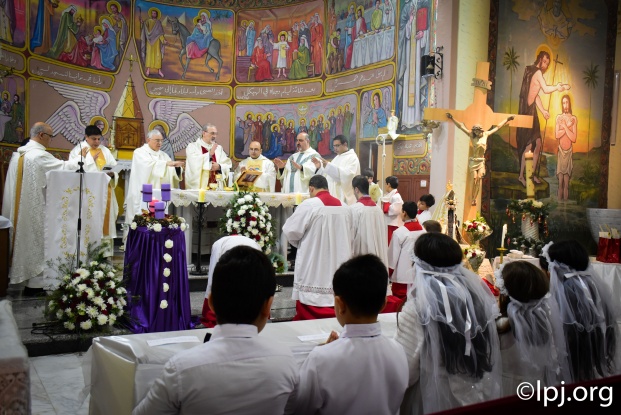GAZA STRIP – With the beginning of March, and with the outbreak of the global COVID-19 pandemic, all shops in Bethlehem closed down, internal and external tourism stopped, and movement inside and outside the cities was blocked. Further protective measures were taken by the governments, that included banning gatherings for large numbers of people and introducing the term: social distancing. Even, unlike times of war, all institutions closed down, including schools and churches. As the ratio of the infected people increased in the city and its suburbs, more restrictions and closures were imposed, as it reached all areas in the Holy Land.
For Palestinians who survived occupation for decades, the current situation was not that different for them. Yet, coronavirus came to paralyse what is left from their social and economical life they had, demonstrating that the virus knows no boundaries, no religion, and no political affiliation.
As for the Gaza Strip, that is inhabited by more than 1.5 million citizens, living under the Israeli siege, with a fragile situation that lacks the major medical and life resources, the virus was able to infiltrate the Strip. According to the World Health Organization (WHO), 12 cases have been recorded to date, while 1852 people are in quarantine facilities, who came from crossing Rafah or Erez checkpoints.
Faithfuls from the Holy Family parish and the religious congregations in Gaza are following the instructions issued by the Apostolic Administrator on March 5, 2020, which called on the faithfull to pray from home, as well as extending prayers and pastoral instructions for the Holy Week following restrictions due to Coronavirus. In these circumstances, Fr. Gabriel Romanelli, the parish priest in Gaza, works on broadcasting Holy Masses and prayers on social media, especially on Facebook. He also showed his readiness to visit the sick and the elderly in their homes, to pray with them and give them the Holy Eucharist and Confession. Meanwhile, he urged the parishioners to pray from their houses and not to leave unless it is necessary. In order to adapt to these exceptional situations, the Latin Patriarchate, through its liturgical office, issued liturgical materials and texts on how to follow the celebrations of the Holy Week from home.
Fr. Romanelli said: “We are used to being under lockdown in Gaza, still, we adhere to all issed instructions. Thus, no lockdown was imposed on Gaza, but all our pastoral activities were stopped, and the schools were closed.” He also added: “Together with the Sisters we raise prayers every day for each one of our parishioners, as well as for all infected people across countries, asking God a speedy recovery for the sick and mercy for the victims of the virus. As for the parishioners, a large number of them are not able to participate through the internet, due to the blackout. Yet, they pray later when they have electricity and internet connection”. He concludes: “We pray for all the sick around the world, and we offer the blessing of the Cross. We place our trust in God as well as our lives, to be directed under His providence”.
This spirit reflects that, even though faithful will celebrate Easter without them attending churches or celebrating together, church services continue to be broadcast via the internet. The spirit of Easter and the sacrifice of Jesus Christ are demonstrating in the love, generosity, and resilience of the Palestinian people, and no virus can dampen it.
Source: www.lpj.org






